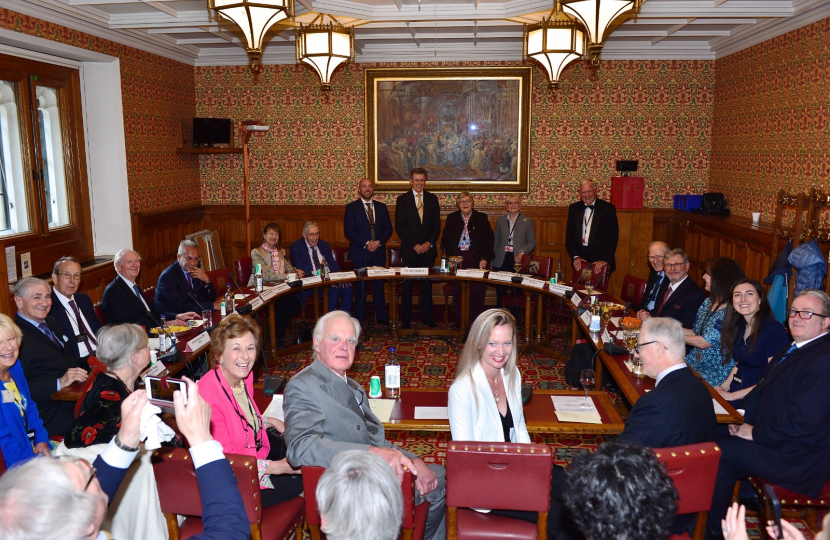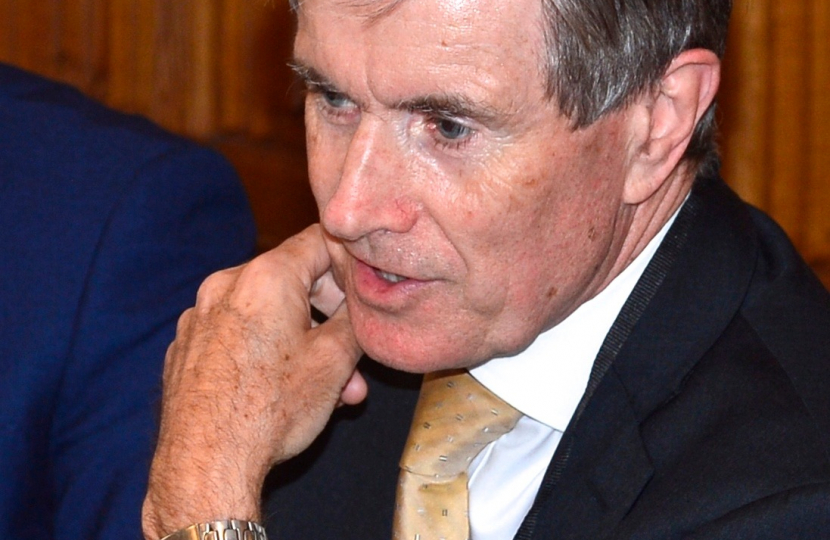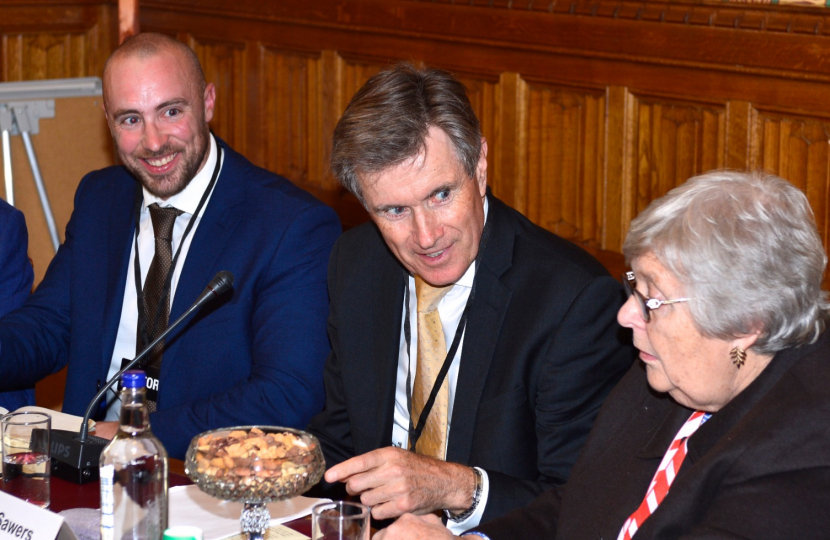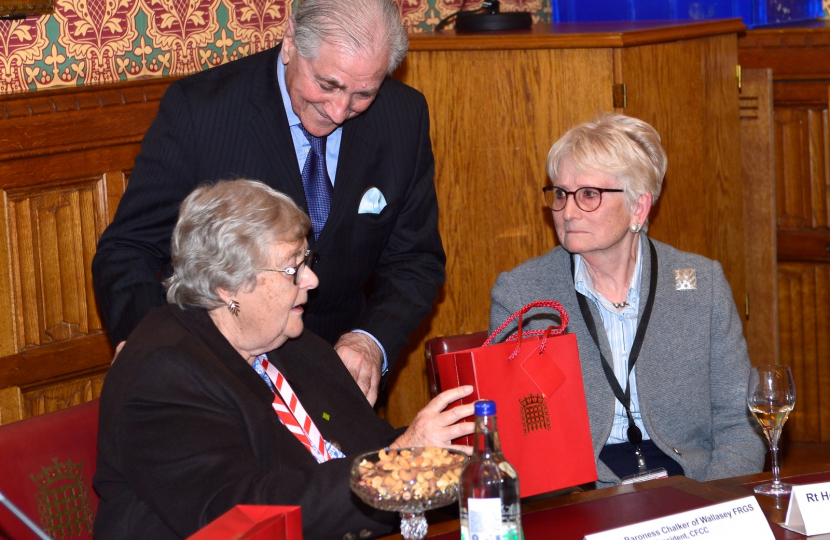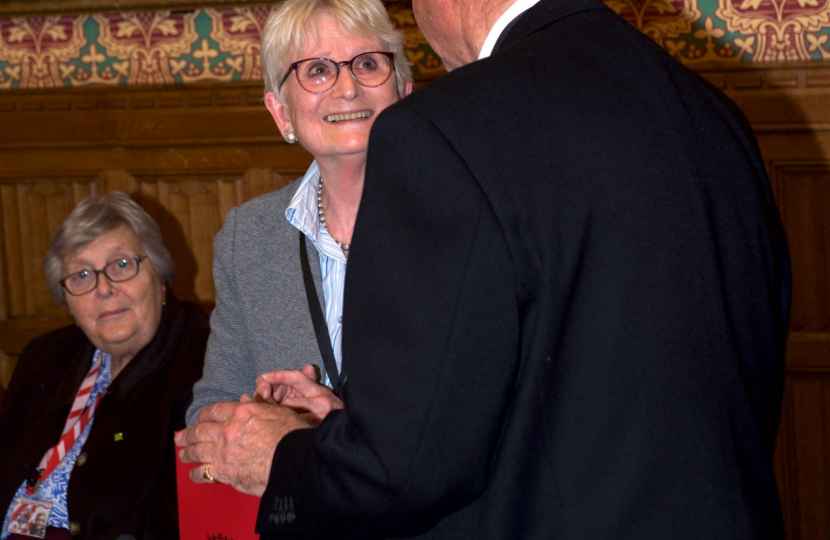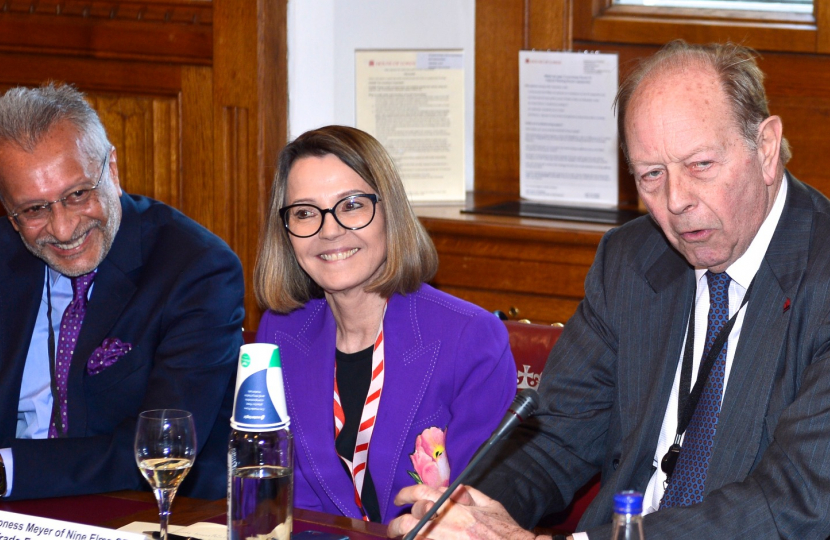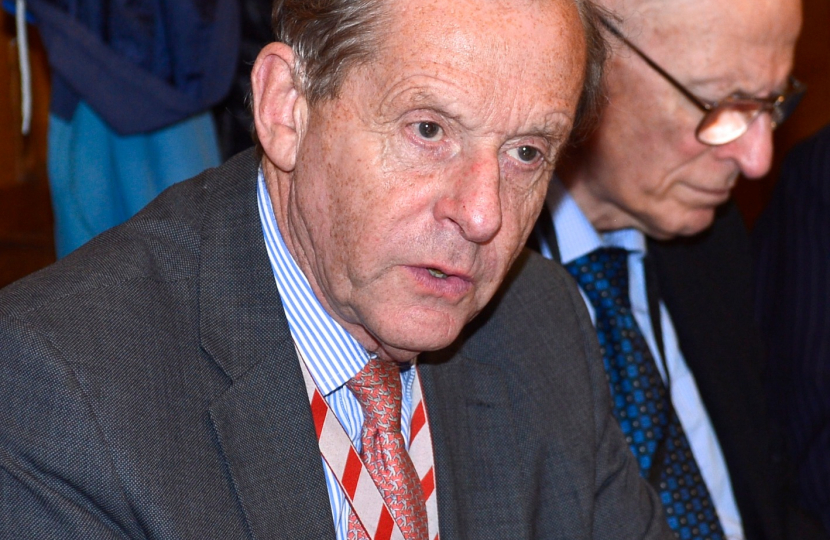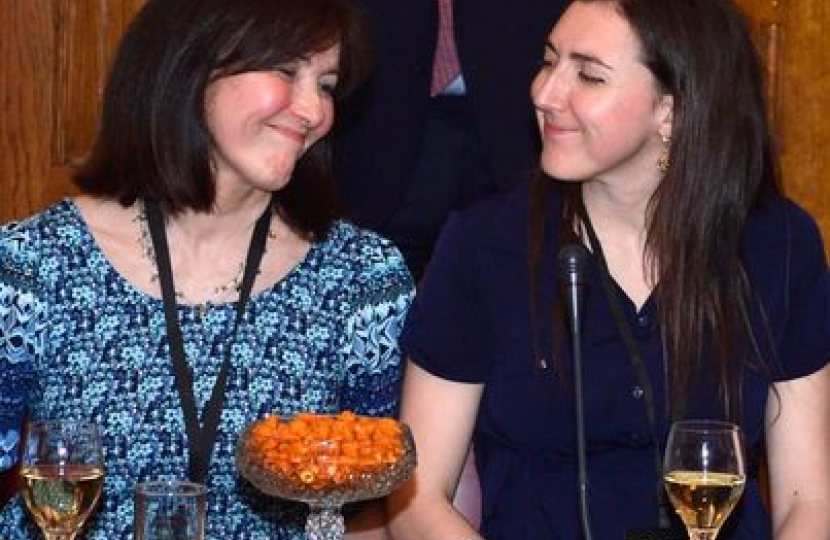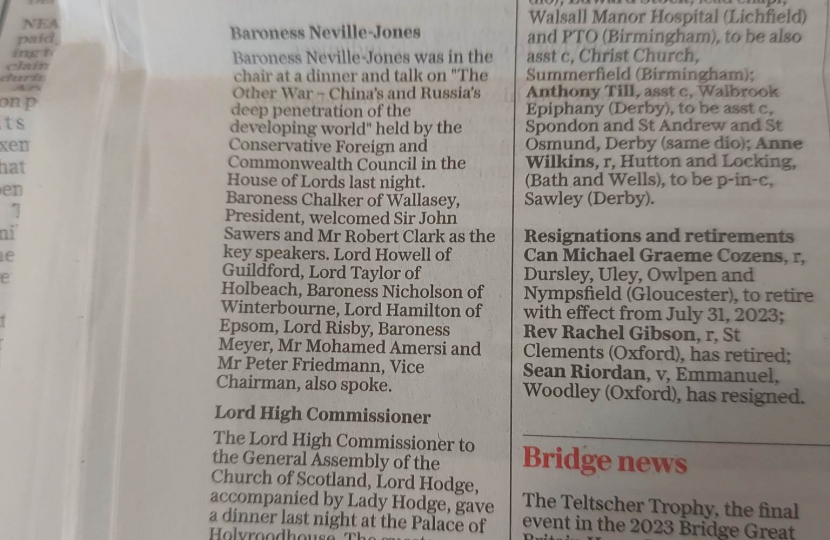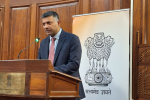A Meeting of the Conservative Foreign & Commonwealth Council (CFCC) took place on May 24th at the House of Lords. Baroness Chalker of Wallasey, as President of the Forum, welcomed Sir John Sawers as guest speaker and Robert Clark of Civitas.
Lady Chalker, in her introduction, reflected on the many years that she had known and worked closely with Sir John beginning when she was Minister of State for Overseas Development and Africa and he was working in Southern Africa at the Foreign Office. The system required close co-operation and between them, which was always excellent - and over many years since.
Having welcomed Sir John, she handed over to Dame Pauline Neville-Jones, who has succeeded Lord Taylor of Holbeach upon his retirement as Chairman of the CFCC. Dame Pauline made the essential introductory point for the discussion to follow that it is necessary to be always conscious of the hearts and minds of the developing world and the outcomes that are dependent on it. The format for the evening, she said, would be a conversation between Sir John and Robert Clark, to be followed by Q & A.
Robert Clark began by saying that in the West we are engaged in a Cold War - a war of ideals and values; democracies versus civil liberties. He cited Xi’s China for eroding values through its influence on many Commonwealth countries and at the UN. An example of the influence autocracies are having on non-aligned nations is the recent vote on Ukraine at the UN. 15 nations had supported the Russian position and most Commonwealth countries had abstained primarily for commercial reasons - their energy requirements depend on discounted cost of supplies which Russia has been able and willing to provide.
Sir John described how rapidly the world is changing. At the end of the Cold War, the G7 nations provided 70% of the global economy - a period of Western dominance. Now, it is just 45%. The Global South, as he branded the non G7 nations, are now far bigger world players covering investment, trade, technology and labour. China has reached its powerful economic position through long term planning with state capitalism to the fore. An example of this is in Africa where China has targeted its industrial mineral needs - rare earth, cobalt, lithium, bauxite for example. In the West, France and, even more so, the U.K. have been distracted by domestic politics with Africa as low priority. This has meant that China’s influence has expanded considerably and welcomed by recipient countries for its economic impact. Nations generally do not want to take sides in an ideological war – they do not see the Ukraine war as their war - but concerns about food security and energy very much are.
Russia, very different to China, has little economically to offer Africa but has established influence through its security support for military regimes in countries like Sudan, Mali and Burkina Faso in return for mineral concessions. Russia’s objective is enrichment of the governing clique in Russia rather than economic development in Africa.
Turning to India, Sir John stressed the importance of India to the U.K, culturally, economically and strategically. Economically it is about to take off, with a fast growing, well-skilled, young population. Strategically it is a member of the Asia Quad with Japan, Australia and the US whose members are collaborating more closely. India has been hedging its bets with Russia because of their reliance on Russia for defence equipment. That Russia is now leaning so strongly towards China for support over Ukraine is of concern to India - China being the main source of threat to India.
With liberal democracy eroding in some countries, Sir John said we needed to pay more attention to leading countries outside the West. We needed to win them around rather than just expect them to respond to our views. We had to build relationships of trust that survived changes of government in our own countries.
The floor was then opened up for questions covering, amongst others whether the U.K. is spending its Aid budget properly, the sustainability of western technologies, on collaboration with the EU with a question relating to potential EU entry for the Ukraine and Moldova and on China with regard to the Ukraine war. Questions were asked by, amongst others, Lady Nicholson of Winterbourne, Lord Risby of Haverhill, Lord Hamilton of Epsom and Lady Meyer of Nine Elms. Lord Howell of Guildford also intervened referring to a question he is often asked about: ‘what does the U.K. do?’ His response, he said, is ‘the Commonwealth’. He spoke of the potential soft power of the Commonwealth which encompasses so many Global South Nations - and growing- with its potential importance for economic cooperation, trade and security embracing a powerhouse such as India with small island states.
Dame Pauline thanked Sir John and Robert Clark. She then thanked the outgoing Chairman, Lord Taylor of Holbeach for his valuable work in steering the Council ably assisted by its Secretary, Melissa Crawshay-Williams, through the highly taxing period of the Covid lockdown and ensuring members continued to be well- fed with interesting topics albeit virtually. Lord Taylor, who will remain a Patron of the Council, thanked all for the pleasurable and interesting time he had spent as its Chairman.
The evening continued with a dinner and further questions from Members for Sir John covering a wide range of topics.
William Knight
Biographies:
Sir John Sawers GCMG FRUSI
Executive Chairman, Newbridge Advisory
Sir John Sawers is Executive Chairman of Newbridge Advisory, a firm he founded in 2019 to advise corporate leaders on geopolitics and political risk. He is also a Non-Executive Director of BP.
Sir John has 36 years of experience in diplomacy and intelligence, culminating in five years as Chief of the British Secret Intelligence Service (MI6) until he left public service in 2014.
As MI6 Chief, he was a member of the UK National Security Council and the Joint Intelligence Committee, contributing to the strategies and policy decisions on how to promote and protect British interests around the World. He led the Service through a period of international political upheaval and high terrorist threat, including against the 2012 London Olympics. He also modernised the way the Service works and created a more open approach to public accountability.
Prior to leading MI6 he was the UK’s Ambassador to the United Nations, Political Director of the Foreign Office, Special Representative in Iraq, Ambassador to Cairo and Foreign Policy Adviser to Prime Minister Tony Blair. In his earlier career he worked overseas in Yemen, Syria, South Africa and Washington, and at home was involved in policy on the EU, Russia and the Middle East.
Sir John became Chairman and Partner at Macro Advisory Partners after he left public service until he set up Newbridge Advisory, his own company.
He studied at the universities of Nottingham, St Andrews and Harvard. In addition to his corporate work, he has pro bono roles with King’s College London, Nottingham University, the Council on Foreign Relations, Chatham House, the Royal United Services Institute, the Bilderberg Association, the Ditchley Foundation and Sevenoaks School.
Robert Clark
Robert Clark is the Director of the Defence and Security Unit (DSU). Prior to this, Robert was a Defence Fellow at Civitas and before at the Henry Jackson Society. Robert has served in the British military for 15 years, including operational tours of Iraq and Afghanistan. Robert has an MA in International Conflict Studies from King’s College London. Recent publications include ‘Inadvertently Arming China’ (Civitas, 2021); ‘A Long March Through The Institutions’ (Civitas, 2020), and ‘Lessons from the Enhanced Forward Presence, 2017-2020’ (NATO Defense College, edited volume).
- paper on Commonwealth Security and China
- https://www.telegraph.co.uk/authors/r/rk-ro/robert-clark/

